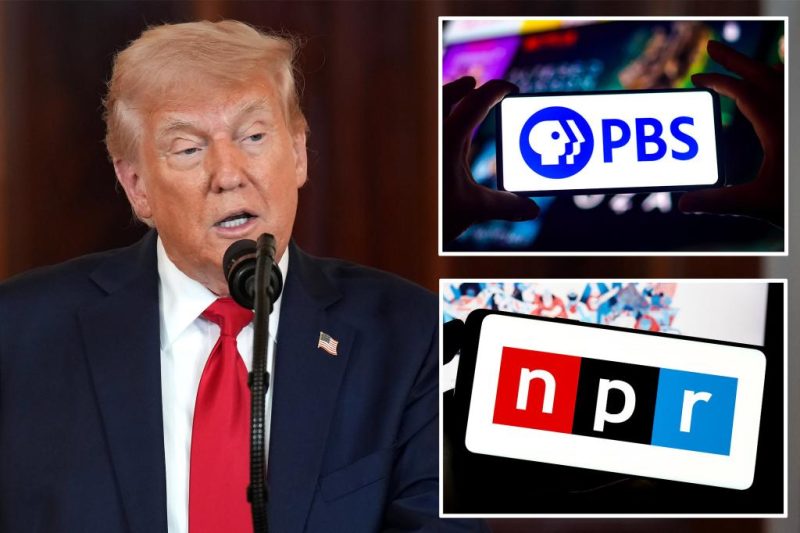
Late Thursday night, President Trump signed a sweeping executive order that sent shockwaves through the media world: the termination of all federal funding for National Public Radio (NPR) and the Public Broadcasting Service (PBS). This dramatic action, announced with little prior warning, immediately sparked intense debate and accusations of political maneuvering.
The executive order, citing unspecified concerns about “bias” and “lack of objectivity,” effectively cuts off a significant portion of the budget for both organizations. NPR and PBS, long-standing providers of public broadcasting in the United States, rely heavily on federal funding to support their operations, including news gathering, programming, and educational initiatives. Critics immediately condemned the move as an attack on public media and an attempt to silence dissenting voices.
Supporters of the president, however, argue that the move was long overdue. They claim that NPR and PBS have consistently displayed a liberal bias in their reporting, and that federal funding should not be used to support organizations perceived as promoting a specific political agenda. This argument has been a recurring theme among conservative commentators for years, and the executive order appears to be a direct response to these concerns.
The long-term consequences of this decision remain uncertain. The immediate impact will likely involve significant budget cuts and potential layoffs at both NPR and PBS. The future of public broadcasting in the United States now hangs in the balance, raising questions about the accessibility and diversity of news and information for the American public. Legal challenges are anticipated, with many experts predicting a protracted legal battle over the constitutionality of the executive order. The debate is certain to continue, fueled by strong opinions on both sides of the issue, and the future of public media in America remains uncertain.










